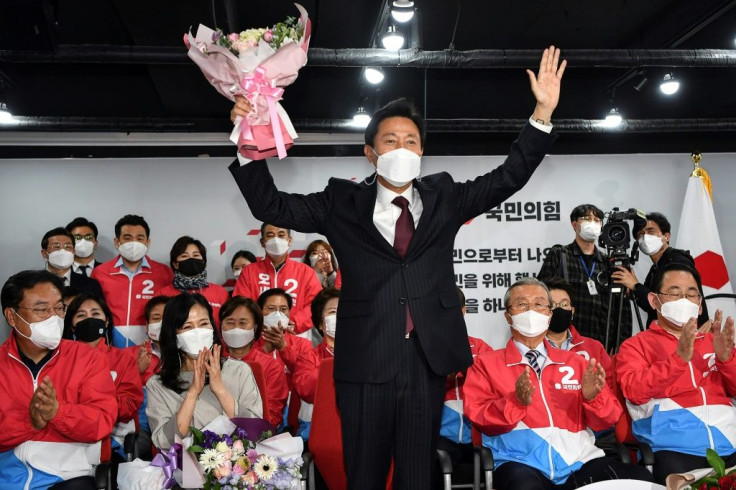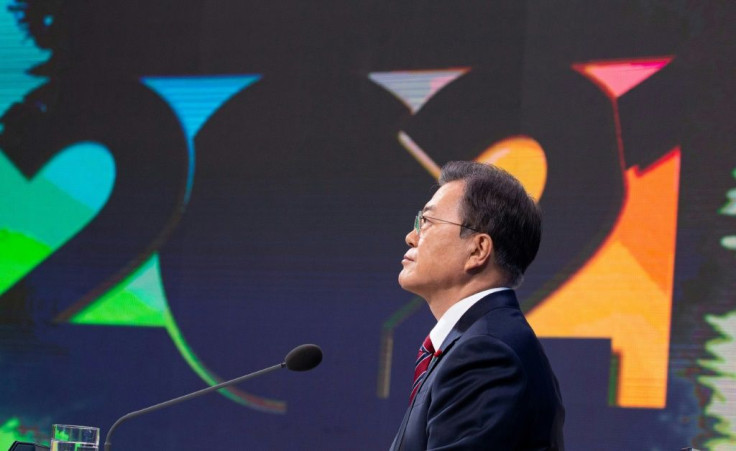Crushing Poll Defeats For South Korea's Ruling Party
South Korea's conservative opposition won landslide victories in elections for the mayors of the country's two biggest cities, results showed Thursday, in a bad sign for Moon Jae-in's Democratic Party a year before the next presidential poll.
Both Democratic-held posts became vacant last year as a result of sexual harassment allegations, with Seoul mayor Park Won-soon killing himself while the leader of the southern port of Busan resigned.
Between them, the two municipalities account for around a quarter of the national population and the vote was seen as a significant barometer of public opinion ahead of the March 2022 presidential election.

In Seoul, Oh Se-hoon of the conservative People Power Party defeated his Democratic opponent by 57.5 percent to 39.2 percent, according to the National Election Commission, winning all the city's 25 districts.
Oh pledged to "embrace the many citizens of Seoul who are in pain".
The conservatives' margin of victory in Busan was even higher, at 62.7 percent to 34.4 percent.

Moon and his Democratic Party have been struggling with plummeting ratings in recent months amid public outrage over soaring housing prices, deepening inequality, and corruption and sex abuse scandals involving senior officials.
"I solemnly accept the people's reprimand," Moon said, according to the presidential spokesperson, promising: "I will lower myself and carry out state affairs with a much heavier sense of responsibility."
The two new mayors will serve out the remaining 14 months of their predecessors' four-year terms.
It was the first time turnout at local elections had exceeded 50 percent, the commission added.
Moon -- who is limited to a single term by South Korea's constitution -- saw his approval ratings plunge to a record-low 32 percent last week, with 58 percent disapproving of the job he is doing, according to a survey by Gallup Korea.
The latest vote result is in stark contrast to the parliamentary elections one year ago, when the Democratic Party enjoyed a sweeping victory that gave it a super-majority in the National Assembly.





















